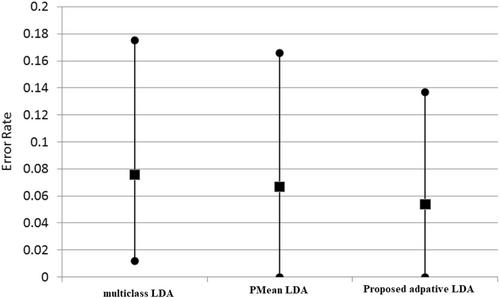自适应分类有助于混合视觉脑机接口系统处理非平稳皮层信号
IF 1.3
Q4 COMPUTER SCIENCE, ARTIFICIAL INTELLIGENCE
引用次数: 0
摘要
脑机接口系统的分类器效率受到脑电图(EEG)信号的非平稳性的显著影响。我们提出了一种线性判别分析(LDA)分类器的自适应变体来解决这个问题。该分类器不断调整其参数以考虑最新的EEG数据。在这项研究中,作者将更新每个类对的均值以及协方差矩阵。视觉诱发皮层电位数据集用于检查所提出的分类器的性能。作者证明了所提出的自适应LDA比静态多类LDA和自适应PMean LDA都要好得多。本文章由计算机程序翻译,如有差异,请以英文原文为准。

Adaptive classification helps hybrid visual brain computer interface systems handle non-stationary cortical signals
The classifier efficiency of the brain-computer interface systems is significantly impacted by the non-stationarity of electroencephalogram (EEG) signals. We propose an adaptive variant of the linear discriminant analysis (LDA) classifier as a solution to this problem. This classifier constantly adjusts its parameters to account for the most recent EEG data. In this study, the authors will update the mean values as well as the covariance matrix of each class pair. Visually evoked cortical potential datasets are used to check how well the proposed classifier performs. The authors prove that the proposed adaptive LDA performs much better than both static multiclass LDA and adaptive PMean LDA.
求助全文
通过发布文献求助,成功后即可免费获取论文全文。
去求助
来源期刊

Cognitive Computation and Systems
Computer Science-Computer Science Applications
CiteScore
2.50
自引率
0.00%
发文量
39
审稿时长
10 weeks
 求助内容:
求助内容: 应助结果提醒方式:
应助结果提醒方式:


